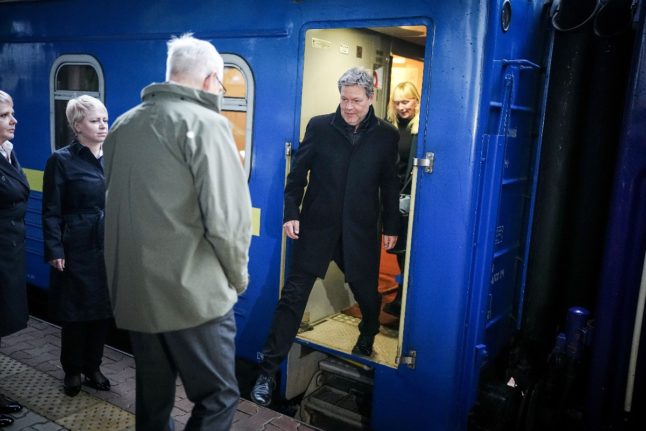“This visit comes at a time when Ukraine needs all the support it can get in its fight for freedom,” Habeck told reporters in the Ukrainian capital.
“And it is a fight for freedom, that’s the important thing that the world, Europe and Germany mustn’t forget,” he said, adding that Ukraine was “fighting for the values that define Europe”.
The trip comes after Germany at the weekend announced it was sending an additional Patriot air defence system to Ukraine after pleas from Kyiv for its Western backer to urgently help foil Russian attacks.
Ukraine has said it is running out of weaponry to shoot down Russian missiles and drones as Moscow ramps up attacks on energy infrastructure.
German Chancellor Olaf Scholz on Wednesday urged fellow EU leaders to urgently follow Berlin’s lead and send more air defence systems to Ukraine.
Habeck, who was accompanied by a business delegation on the trip, will hold talks with President Volodymyr Zelensky.
He will also meet with Ukrainian officials to discuss emergency aid and business ties as well as preparations for the annual Ukraine Recovery Conference to be held in Berlin in June, the German economy ministry said in a statement.
“Comprehensive support for Ukraine also includes support for a resilient energy supply and reconstruction. Private sector investment is crucial for this to succeed,” Habeck was quoted as saying in the statement.
The World Bank has estimated the total cost of reconstruction facing Ukraine more than two years since the start of the war is at least $486 billion.
OPINION: Germany’s timid strategy risks both Ukraine’s defeat and more war in Europe



 Please whitelist us to continue reading.
Please whitelist us to continue reading.
Member comments